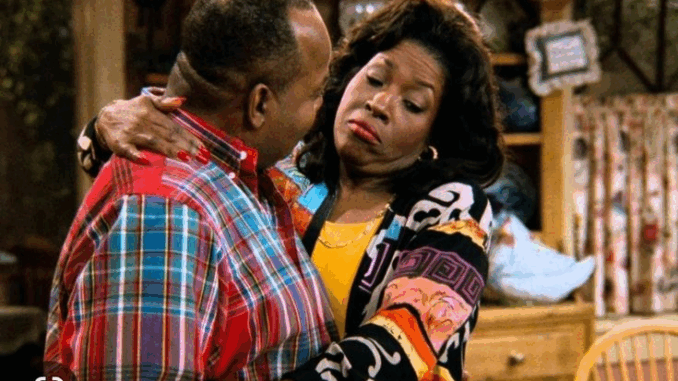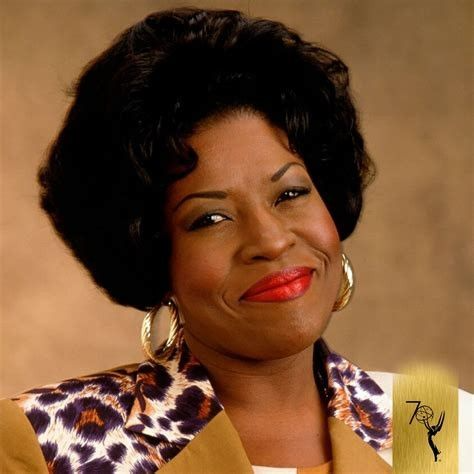
As Harriette Winslow, Jo Marie Payton was the heart and backbone of the Family Matters series. She brought warmth, humor, and strength to a role that resonated with millions of viewers. For nearly a decade, Payton portrayed the matriarch of the Winslow family, balancing life, work, and parenting with grace and realness rarely seen in sitcoms of the era.
But behind the scenes, Payton was more than just a TV mom — she was a fierce professional, an advocate for integrity on set, and, ultimately, someone who chose to walk away from the show that made her a household name. Her sudden and controversial exit during the show’s final season shocked fans and raised countless questions. What really happened behind closed doors? Why would the actress who helped launch Family Matters leave before its final curtain call?
This is the untold story of Jo Marie Payton — the beloved matriarch who stood her ground and left the spotlight on her own terms.
A Pillar of the Show’s Original Vision
Before Family Matters was a standalone series, Jo Marie Payton originated her character Harriette Winslow in Perfect Strangers as an elevator operator. Due to her popularity, producers built Family Matters around her character and her fictional family — a rare and groundbreaking move for a Black female lead in late-1980s network television.
Payton wasn’t just part of the show — she was its foundation. She gave the Winslow household its voice of reason and often anchored storylines that dealt with real-life issues such as racism, parenting challenges, and financial hardship.
In a television landscape filled with caricatures, Jo Marie Payton brought authenticity. Her performance helped set the tone for Family Matters as more than just a sitcom — it was a family drama with laughs.
But that foundation began to crack once one specific character grew larger than the show itself.
The Rise of Urkel and the Shifting Spotlight
It’s no secret that Family Matters underwent a dramatic transformation after the introduction of Steve Urkel, played by Jaleel White. Originally intended as a one-episode guest appearance, Urkel’s nerdy charm quickly made him a fan favorite — and soon, the show shifted its focus almost entirely to his antics.
Jo Marie Payton, like many original cast members, struggled with this change. She had signed on for a family-focused sitcom, but as the years went on, storylines centered less around the Winslows and more around Urkel’s increasingly outrageous hijinks, science-fiction experiments, and slapstick comedy.
The original intention — a heartfelt depiction of a working-class Black family — had evolved into a one-man spectacle. Payton reportedly grew frustrated as meaningful storylines were dropped or minimized in favor of “Urkel-mania.”
According to Payton, the tone of the show had changed so drastically that she no longer recognized the series she had helped create. Though she maintained professionalism on screen, those close to the production said tensions began to grow between her and producers.
The On-Set Confrontation with Jaleel White
The most infamous chapter in Jo Marie Payton’s story on Family Matters was a confrontation with Jaleel White that nearly turned physical. During the show’s ninth season — which would ultimately be Payton’s last — an incident occurred that revealed just how frayed relationships had become.
According to Payton, the dispute erupted over a scene that White insisted on performing involving a prop-related gag that crossed broadcast standards. Payton objected, citing not just FCC concerns, but the overall tone and quality of the content.
What happened next stunned everyone on set: Payton claims that White “stepped to me” in an aggressive manner, and she had to be restrained from retaliating. Though the situation did not become violent, it was serious enough that the production briefly shut down, and Payton later admitted that she considered quitting on the spot.
This incident highlighted a growing power imbalance on set. White, as the breakout star, had increasingly more influence over scripts and creative decisions. Payton, though an original cast member, felt sidelined and disrespected.
Though she stayed on long enough to finish part of the ninth season, she ultimately made the difficult decision to walk away — not just from the show, but from what she described as a toxic work environment.

Quiet Exit, Loud Message
Jo Marie Payton’s departure from Family Matters was anything but ordinary. Instead of a farewell episode or a major storyline to write her character off, she quietly disappeared partway through Season 9 and was replaced by actress Judyann Elder. The transition was abrupt and awkward, leaving fans confused.
No official explanation was provided at the time, but rumors swirled. Some believed Payton had been forced out due to rising tensions with White and producers. Others speculated that she simply had enough.
In later interviews, Payton clarified: “It wasn’t about money. It wasn’t about fame. It was about respect. I had given nine years of my life to that show. I deserved to be treated with dignity, and I didn’t feel that anymore.”
Her departure sent shockwaves through the entertainment industry. Here was a Black woman in her prime, stepping away from a hit show — not because she couldn’t keep up, but because she refused to tolerate disrespect and creative betrayal.
A Voice for Accountability in Hollywood
In the years following her exit, Jo Marie Payton has emerged as a vocal advocate for professionalism and fairness in the entertainment industry. She has often spoken out about the double standards faced by Black actresses and the importance of standing firm in your values, even when it costs you.
Her story became a cautionary tale for many up-and-coming actors about the risks of losing creative control and the dangers of staying silent in toxic workplaces. In many ways, her exit from Family Matters was not a breakdown — it was a breakthrough.
Payton refused to play the game of “grin and bear it.” She challenged her co-stars and the producers when she believed the show had lost its way. In doing so, she sacrificed short-term popularity for long-term integrity.
Life After ‘Family Matters’
Unlike some of her castmates, Jo Marie Payton didn’t vanish from the screen after Family Matters. She went on to voice “Suga Mama” in The Proud Family, one of Disney’s most acclaimed animated series, bringing her strong maternal energy to a new generation of viewers.
She has also guest-starred on shows such as Will & Grace, Desperate Housewives, and Meet the Browns, continually reminding audiences of her wide-ranging talent.
In addition to acting, Payton has been involved in philanthropy, community work, and public speaking, often addressing topics such as artistic freedom, racial equity, and empowerment for women in the arts.
Far from being a casualty of scandal, she transformed her departure from Family Matters into a platform for advocacy and authenticity.
Reunions and Reflections
In recent years, Jo Marie Payton has expressed a more forgiving tone toward her time on Family Matters. She participated in reunion events and cast retrospectives, including the long-awaited Family Matters reunion on streaming specials.
When asked about Jaleel White in later interviews, Payton has said, “He was young. We were all under pressure. I wish we had handled things differently, but I’m proud of what we created.”
Still, she has never walked back her belief that walking away was the right decision. For Payton, choosing peace over paycheck was a defining moment — and one that would ultimately shape how she was remembered.
Conclusion
Jo Marie Payton’s scandal wasn’t defined by tabloid drama or legal disputes. Her “controversy” was one of principle, professionalism, and personal boundaries. In a system that often pressures women — especially Black women — to stay silent, smile, and endure, she made a radical choice: to speak up and walk away.
Her story is not one of failure, but of fierce independence. In leaving Family Matters, Payton did not just exit a sitcom — she made a statement that echoes to this day. Sometimes, the most powerful scandal is the quiet rebellion against mistreatment, and Jo Marie Payton’s legacy is stronger because of it.
